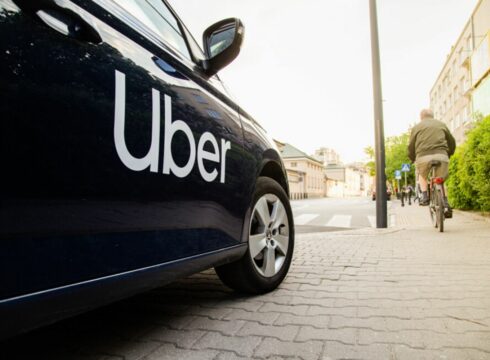SUMMARY
Uber said it will have 1,500 electric vehicles running in India by the end of 2020
It has already signed partnerships with Yulu and SUN Mobility to expand its EV offerings
Business economics and government push have driven Uber India's EV agenda
Inc42 Daily Brief
Stay Ahead With Daily News & Analysis on India’s Tech & Startup Economy
Uber India is planning to expand its fleet of 350 electric vehicles (EVs) to 1,500 by the end of the year 2020. For this, the Indian unit of US-based ride-hailing company is planning to form strategic partnerships with domestic startups and companies, possibly extending some already existing tie-ups.
For instance, Uber has piloted electric autos in Chandigarh, in partnership with SUN Mobility. Under this, SUN Mobility offered its energy infrastructure that includes swappable smart batteries and quick interchange stations to select original equipment manufacturers (OEMs) for building electric autos.
Besides that, Uber also partnered with the Bengaluru-based dockless bicycle-sharing platform Yulu last year to let Uber users access the Yulu app. Back in 2017, Uber and Mahindra also formed a partnership, where the automobile giant would deploy hundreds of electric hatchback e20Plus and electric sedan eVerito on Uber’s platforms in New Delhi and Hyderabad.
In an interview with ET, CEO of Uber India and South Asia, Pradeep Parameswaran acknowledged that EVs will be a meaningful part of Uber’s portfolio in the next 24 months, especially in two and three-wheeler space. For this, Uber India has been partnering with various companies to expand its offerings.
Parameswaran assured that the company sees India as a growth market for the next 10 years. Therefore, it continues to partner with the automobile industry and startups to launch new products, especially in terms of electric mobility.
“We believe that the original equipment manufacturers (OEM) industry in India is very evolved and robust… Our strategy is to actively partner with OEMs, financiers and technology service providers for charging infrastructure that are building these form factors and bring in our rider base, safety, and marketplace technology,” Parameswaran said.
Uber India’s emphasis on EVs is driven by a two-fold agenda — better business economics and increased government push. Parameswaran highlighted that the Indian mobility ecosystem is the most vibrant ecosystem, after China.
“A number of mobility players that have scaled in the last two years — from Bounce, Vogo, Rapido, Quick Ride — we are actively considering ways to expand our relevance through partnerships,” Parameswaran added.
He said electric two and three-wheelers are commercially feasible, whereas electric four-wheelers would need at least three or more years to monetise. In terms of fuel and compressed natural gas (CNG) run vehicles, Uber India has been seeking a high demand in three and two-wheelers, indicating the customer’s preference for affordable rides.
“Roughly, two out of the three Uber trips are in cars, and one in an auto and bike. By the end of the year, we expect that in the big cities, the mix of auto and moto rides will touch 50%…and in small towns, auto and moto will be well north of 50%,” the CEO said.
Note: We at Inc42 take our ethics very seriously. More information about it can be found here.


